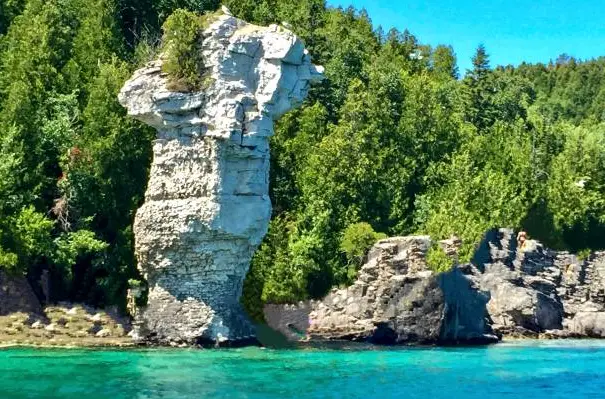Yes, there are several initiatives in place to protect Canada's freshwater ecosystems. As we all know, Canada's freshwater ecosystems are essential for biodiversity, human health, and economic prosperity. However, they face numerous threats, including pollution, habitat loss, climate change, and invasive species. To address these challenges and ensure the long-term health of our waterways, various initiatives and collaborative efforts are underway across the country.

Legislative Frameworks and Policy Initiatives:
Canada Water Act: Established to support the conservation, development, and utilization of Canada's water resources in a sustainable manner.
Canadian Environmental Protection Act: Regulates the release of harmful substances into the environment, protecting freshwater quality.
Species at Risk Act: Identifies and protects species at risk, including those dependent on freshwater habitats.

Read more: Most Popular Lakes In Canada To Visit | Canada Lakes
Conservation and Restoration Projects:
Watershed Management: Collaborative efforts among governments, NGOs, and local communities to manage watersheds sustainably, including restoring riparian zones and reducing pollution inputs.
Wetland Conservation: Initiatives to conserve and restore wetlands, such as Ducks Unlimited Canada's Wetland Conservation Programs, which focus on habitat restoration and enhancement.
Lake and River Protection: Programs like the Lake Winnipeg Basin Initiative and the Great Lakes Restoration Initiative aim to address water quality issues and restore degraded ecosystems.
Indigenous-Led Stewardship:
Indigenous Protected and Conserved Areas (IPCAs): Indigenous communities are leading efforts to protect freshwater ecosystems through IPCAs, integrating traditional knowledge and modern conservation practices.
Co-Management Agreements: Collaborative agreements between Indigenous groups and government agencies for the sustainable management of water resources, recognizing Indigenous rights and responsibilities.

Citizen Science and Community Engagement:
Community Monitoring Programs: Engage citizens in monitoring water quality, identifying pollution sources, and contributing data to inform decision-making.
Volunteer Clean-up Initiatives: Organized clean-up events along rivers, lakes, and shorelines to remove litter and reduce pollution.
Read more: How Can I Reduce My Environmental Impact While Traveling In Canada?
Research and Innovation:
Freshwater Research Networks: Collaborative research initiatives, such as the Canadian Rivers Institute and the Global Water Futures Program, advance scientific understanding of freshwater ecosystems and inform management strategies.
Innovative Technologies: Developments in water treatment, monitoring, and remediation technologies contribute to more effective freshwater conservation and restoration efforts.
Final words:

Protecting Canada's freshwater ecosystems requires concerted efforts from the government, Indigenous communities, NGOs, researchers, and citizens. Through legislative frameworks, conservation projects, Indigenous stewardship, community engagement, and innovation, we can safeguard these vital resources for current and future generations. By working together, we can ensure the health and resilience of Canada's freshwater ecosystems for years to come.
